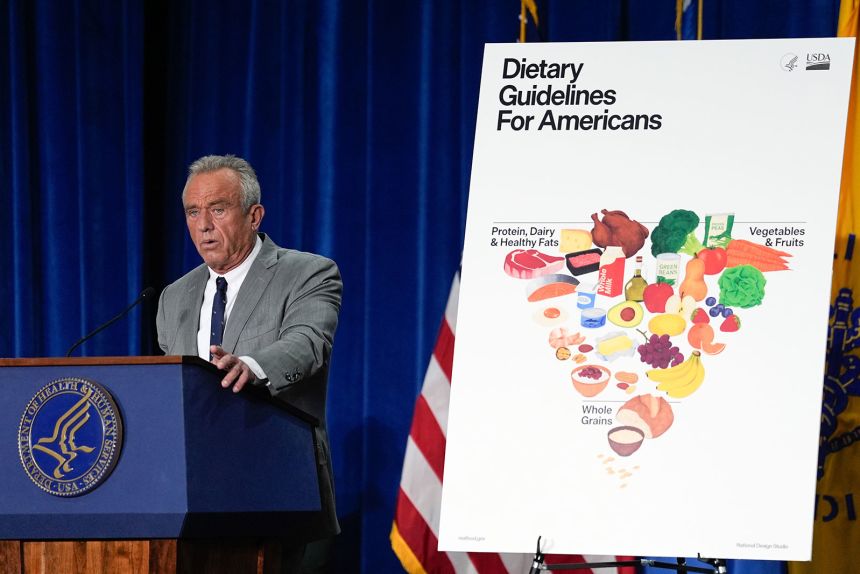Understanding Florida’s Hurricane Risks for Restaurants
Florida’s coastline is synonymous with hurricanes and tropical storms, and while the breathtaking views attract millions of visitors each year, the same weather patterns can spell disaster for local businesses. For restaurant owners, these natural disasters represent far more than a temporary inconvenience; they pose a direct and immediate threat to property, employees, and long-term business continuity. A single storm surge or flash flood can wipe out expensive kitchen equipment, ruin perishable inventory, and cause structural damage that requires months of repairs. High winds often lead to roof collapses, broken windows, or electrical system failures, all of which can disrupt service and force restaurants to shut their doors unexpectedly. In many cases, establishments without sufficient coverage not only lose revenue during the closure but also face overwhelming repair bills that make reopening nearly impossible. Some restaurants, particularly those just starting out, may even be forced into permanent closure after just one severe storm.
This is why securing restaurant insurance for new businesses Florida is not just a regulatory formality but a strategic necessity for long-term success. A properly structured commercial property insurance policy can help safeguard a restaurant’s most valuable physical assets, including the building itself, kitchen appliances, furnishings, and inventory, against the devastating effects of hurricanes, tropical storms, and flooding. Beyond property protection, many policies also include coverage for business interruption, allowing owners to recoup lost income and manage ongoing expenses while the restaurant undergoes repairs. In some cases, coverage may extend to temporary relocation costs, ensuring that operations continue with minimal disruption and that customer relationships remain intact even during challenging times. However, not all policies are created equal, understanding the specifics of what is covered, such as wind-driven rain or storm surge damage, and what exclusions apply, is critical. By carefully reviewing policy terms and working with an experienced insurance provider, restaurant owners can select coverage that truly protects their livelihood and gives them the confidence to withstand Florida’s unpredictable hurricane season.
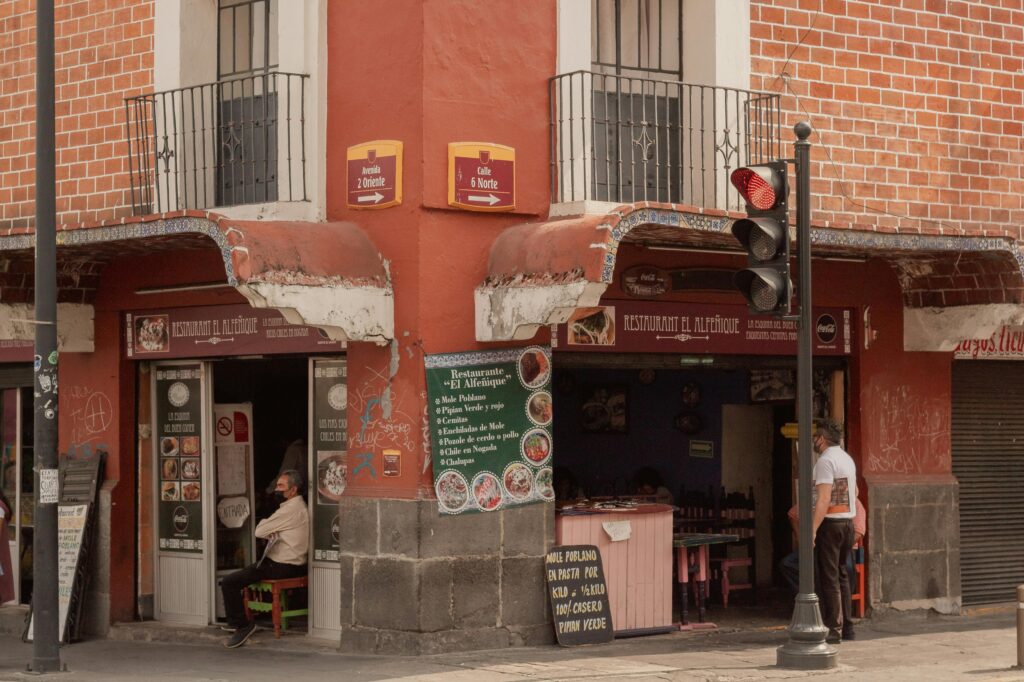
Common Insurance Confusions Among Restaurant Owners
Many restaurant operators enter the industry with the assumption that a standard insurance policy will automatically protect them against hurricane-related damages. Unfortunately, this is one of the most common misconceptions in the hospitality sector. A basic general liability policy typically covers third-party injuries such as slips and falls but does not extend to property damage caused by natural disasters like hurricanes, storm surges, or flooding. Without the right endorsements or additional coverage, restaurant owners may find themselves responsible for costly repairs and extended closures after a storm. This is particularly risky for new establishments that have invested heavily in equipment, décor, and inventory. For that reason, obtaining restaurant insurance for new businesses Florida is not simply about meeting minimal requirements; it is about proactively building financial resilience against the state’s unique environmental risks.
Beyond general liability, specialized protections such as business interruption insurance and property riders tailored to hurricane and flood damage are essential for a comprehensive risk management strategy. Business interruption coverage ensures that even if a restaurant cannot operate due to storm-related damage, owners can recover lost income and continue paying essential expenses like employee wages, rent, and utilities. Property riders, meanwhile, provide the added security of covering high-value items such as refrigeration systems, cooking equipment, or even outdoor dining areas that may be especially vulnerable in severe weather. These policies can make the difference between a restaurant reopening quickly after a storm or shutting its doors permanently.
Protecting Property Assets Against Severe Weather
Florida restaurants face serious property risks during hurricanes, roof damage, flooding, broken windows, and electrical failures are common. For new establishments, these losses can be especially devastating, which is why securing restaurant insurance for new businesses Florida is essential.
Commercial property insurance provides broad protection for buildings, equipment, and inventory, but high-risk areas often require supplemental riders. For example, equipment breakdown coverage safeguards ovens, refrigeration units, and HVAC systems from storm-related electrical surges. Policies can also include spoilage coverage, helping owners recover the value of perishable goods lost during power outages or flooding. By choosing the right restaurant commercial property insurance Florida, owners ensure they have tailored protection that keeps operations resilient even during hurricane season.
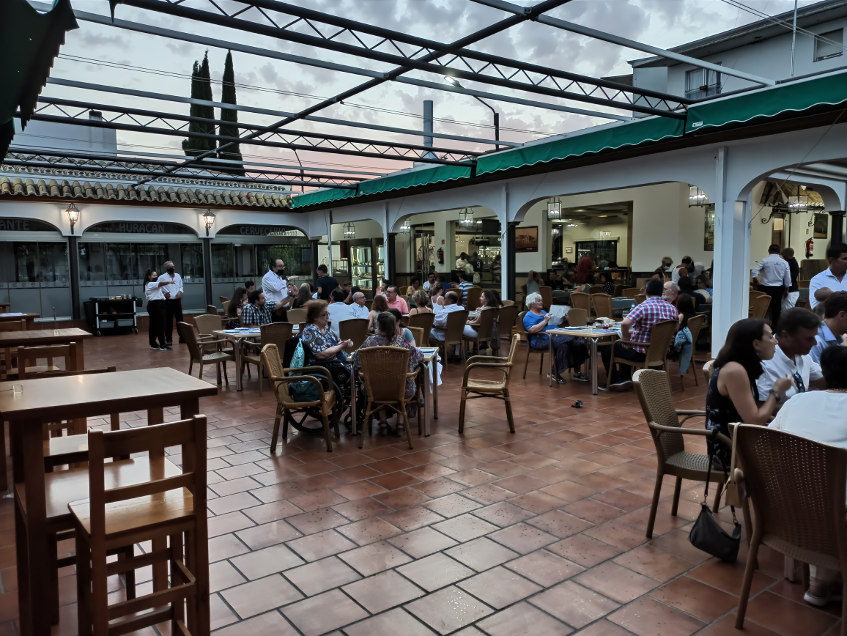
Maintaining Business Continuity With Insurance
The consequences of a hurricane go far beyond physical property damage; extended downtime can quickly devastate a restaurant’s revenue stream and jeopardize long-term survival. Business interruption insurance is designed to provide compensation for lost income and ongoing fixed expenses, such as payroll, rent, and utilities, during periods when operations cannot continue. For new establishments still building a customer base and financial stability, securing restaurant insurance for new businesses Florida that includes this coverage is especially critical.
Restaurants with multiple locations may also benefit from contingency coverage, which helps manage cascading impacts when one site’s closure affects others. In addition, certain policies can extend to cover relocation costs, allowing owners to operate from an alternative location and minimize customer disruption. Some plans even provide additional living expenses for staff temporarily displaced by the disaster, ensuring employees are supported while operations recover. This added layer of protection not only safeguards revenue but also helps both employees and the business return to normal more efficiently after severe weather.
Staff Protection and Workers’ Compensation
Hurricanes and severe storms create a high-risk environment not only for property but also for restaurant staff. Slips, falls, and injuries often occur while preparing for severe weather, securing equipment, or during cleanup after the storm. Florida law requires any restaurant with employees to maintain workers’ compensation insurance, which provides coverage for medical expenses, rehabilitation costs, and lost wages resulting from work-related injuries. For new establishments, including this protection within a broader restaurant insurance for new businesses Florida plan is essential to remain compliant and financially secure.
Beyond coverage, operators have a responsibility to educate employees on safety procedures before, during, and after a storm. Clear training reduces accidents and ensures staff know how to respond in emergencies. Properly documenting incidents and claims is equally important, as incomplete reporting can delay or jeopardize compensation. Many insurance providers also offer risk assessment tools designed to help restaurants identify workplace hazards and strengthen safety practices. Using these resources not only protects employees but can also lead to lower premiums, creating a safer and more cost-efficient operation during hurricane season.
Liability Coverage During Storm Events
Beyond protecting property and employees, liability exposure is one of the most critical concerns for restaurant owners during hurricane season. Severe weather can create unexpected hazards, falling debris, flooding in entryways, or even structural failures that may lead to third-party injuries or damage to surrounding property. Without the right protection, these incidents can result in costly lawsuits and legal claims that place significant financial strain on a business. General liability coverage provides a safeguard by covering legal defense costs, medical expenses, and settlements related to such claims. For entrepreneurs just starting out, incorporating this protection into a broader restaurant insurance for new businesses Florida policy ensures peace of mind when facing unpredictable risks.
Restaurants located in high-risk hurricane zones often need more than standard liability coverage. Expanded liability limits or specialized endorsements may be required to account for exposures tied to temporary structures, outdoor dining spaces, signage, or even parking lots that become hazardous during storms. Understanding how policy limits, exclusions, and claim procedures work is essential to avoid dangerous gaps in coverage. By tailoring liability protection to the unique risks of Florida’s storm-prone environment, restaurant owners can reduce vulnerabilities and strengthen their ability to recover swiftly and confidently after severe weather events.
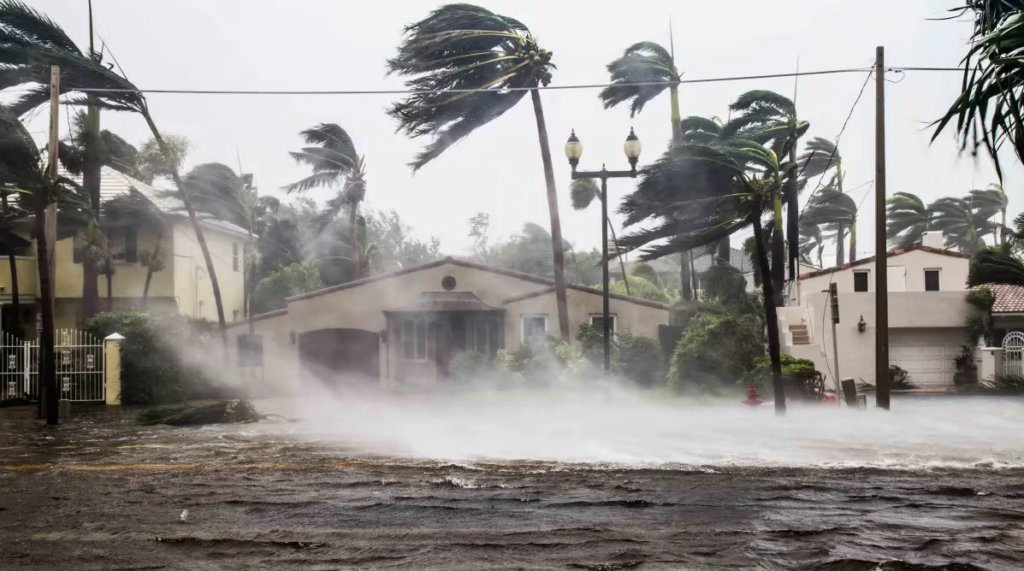
Strategic Risk Management: Preparing Before the Storm
Insurance alone does not eliminate risk; it serves as a critical safety net that works best when combined with proactive risk management. For restaurants, especially those in hurricane-prone Florida, having a well-structured preparedness plan can make all the difference. Measures such as securing outdoor equipment, installing flood barriers, reinforcing windows, and backing up critical digital data not only reduce potential losses but also demonstrate responsibility to insurers. In fact, many providers require documented preventive actions before approving storm-related claims, underscoring the importance of taking mitigation seriously.
For new business owners, pairing these preventive strategies with a tailored restaurant insurance for new businesses Florida policy provides a solid foundation for resilience. Insurance can cover the financial aftermath of a storm, but proactive planning ensures operations can resume faster and with less disruption.
Equally important is the regular review of insurance policies. Risks evolve with time, and coverage should evolve too. Seasonal adjustments, updated policy riders, and premium changes should be assessed annually to ensure protection aligns with current exposures. In hurricane-prone regions, this step is vital for avoiding costly gaps in coverage. By combining preventive action with ongoing policy reviews, restaurant owners position themselves to withstand Florida’s unpredictable weather with confidence.
Case Studies: Real-World Impact of Proper Insurance
Real-world examples from Florida’s hurricane seasons show just how crucial comprehensive insurance can be for restaurant survival. Several establishments with well-structured coverage including commercial property and business interruption insurance were able to resume operations within weeks after suffering storm damage. Their policies allowed them to repair physical structures, replace essential equipment, and cover payroll during downtime, which helped retain staff and maintain customer loyalty. In contrast, restaurants that relied solely on basic liability coverage often faced months of lost revenue, overwhelming repair costs, and in some cases, permanent closure.
By securing restaurant commercial property insurance Florida as part of a broader plan, these businesses not only recovered physical assets but also protected revenue streams and supported displaced employees. For new operators, the lesson is clear: proactive planning makes the difference between recovery and closure. Incorporating restaurant insurance for new businesses Florida ensures startups have the financial resilience to withstand natural disasters, providing both immediate relief after a storm and long-term stability in a high-risk environment. Documented claims from these scenarios highlight the tangible benefits of investing in comprehensive, tailored coverage before disaster strikes.
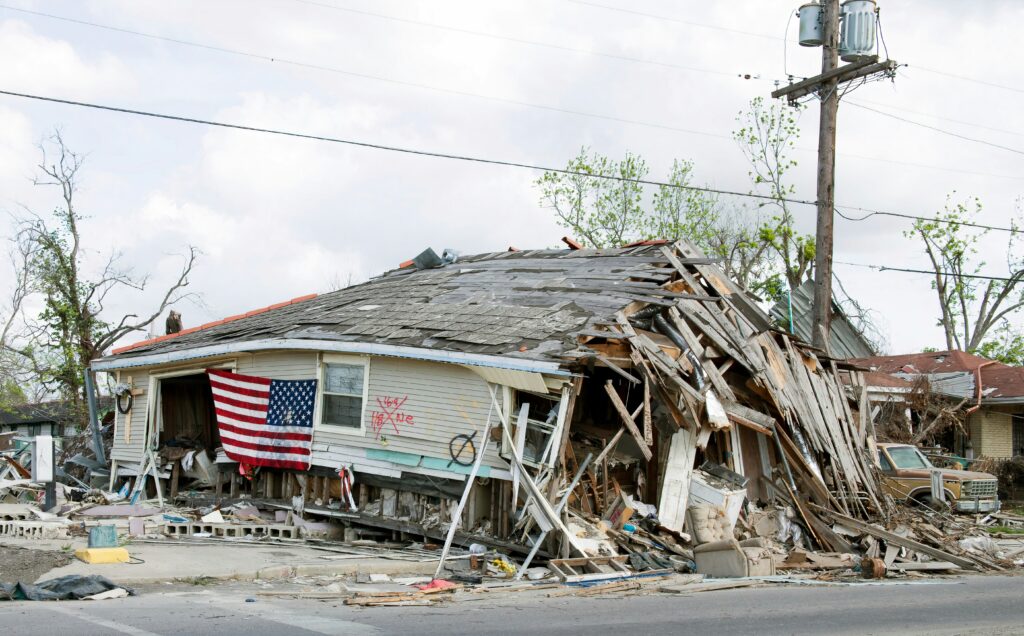
The Financial Consequences of Inadequate Coverage
One of the most underestimated challenges of hurricane preparedness is the long-term financial toll that inadequate insurance can create. Restaurants that rely only on basic liability coverage often discover, too late, that it does not extend to property damage, business interruption, or employee-related risks. As a result, owners are left to absorb massive out-of-pocket expenses. Repairing a damaged roof, replacing specialized kitchen equipment, and restocking perishable inventory can quickly add up to tens or even hundreds of thousands of dollars. Without proper coverage, these costs can drain reserves, force owners into debt, or, in the worst cases, lead to permanent closure.
Beyond repair costs, downtime has its own financial consequences. A restaurant that remains closed for weeksor monthsloses not only daily revenue but also customer loyalty. Regular clients often turn to competitors, and regaining that trust can be more difficult and costly than repairing a building. For new establishments, which are still establishing their reputation and stabilizing their cash flow, even a brief disruption can severely erode profit margins and jeopardize long-term viability.
Securing restaurant insurance for new businesses Florida helps mitigate these risks by offering a financial safety net that covers multiple layers of exposure. Comprehensive policies can fund physical repairs, replace spoiled inventory, and provide compensation for lost income during downtime. In addition, business interruption coverage ensures that essential obligations such as rent, utilities, and payroll continue to be met even when the restaurant is not generating revenue. This type of financial resilience not only preserves the business itself but also protects its brand reputation and staff, allowing owners to focus on rebuilding operations with greater confidence.
Navigating Regulatory and Compliance Requirements
Florida restaurants must navigate a complex web of building codes, zoning laws, and safety regulations, especially those located in coastal or flood-prone areas. These requirements are not just bureaucratic hurdles; they often determine whether an insurance claim will be fully approved after a hurricane or storm. For new operators unfamiliar with the state’s regulatory environment, compliance can feel overwhelming, which is why working with specialized insurance providers is so valuable. Agencies experienced in hospitality coverage guide owners through legal obligations and help adjust policies so that protection remains valid and effective.
Failure to comply with state or municipal regulations may lead to partial payouts or, in some cases, complete denial of claims, leaving restaurants financially vulnerable. For this reason, aligning coverage with legal requirements should be considered a central part of any risk management plan. Tailored solutions, such as restaurant insurance for new businesses Florida, not only provide essential coverage but also ensure policies meet regulatory standards. By integrating compliance into their insurance strategy, restaurant owners can mitigate both financial and legal risks while strengthening operational credibility and resilience in a high-risk environment.
The Importance of Regular Policy Reviews
Insurance is not a static investment; the needs of a restaurant change over time, and so do the risks it faces. New equipment purchases, renovations, expansion to a second location, or even changes in local building codes can create gaps in coverage if policies are not updated accordingly. Many restaurant owners assume their existing coverage automatically adapts to these changes, but this is a costly misconception. Without periodic reviews, a business may find itself underinsured at the exact moment disaster strikes.
For restaurants located in Florida where hurricane exposure is constant and regulations evolve, regular policy evaluations are even more critical. Seasonal adjustments may be necessary to account for storm activity, while new policy riders could provide added protection for outdoor dining areas, upgraded kitchen appliances, or expanded delivery operations. By scheduling annual reviews, restaurant operators ensure that their coverage remains aligned with both current assets and emerging risks.
This practice is especially valuable for new owners. Choosing restaurant insurance for new businesses Florida is only the first step; maintaining it effectively requires ongoing oversight. Partnering with specialized insurance providers makes this process straightforward, as advisors can identify coverage gaps, recommend cost-effective adjustments, and keep the policy in compliance with state requirements. Ultimately, regular reviews not only prevent unpleasant surprises during claim filing but also reinforce long-term financial stability and operational resilience.
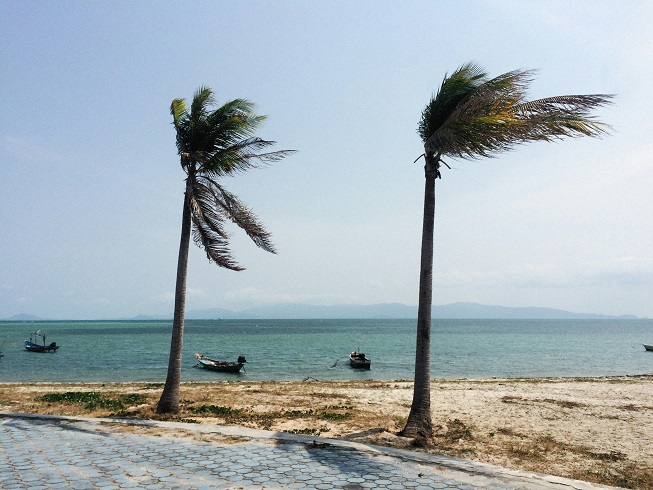
Internal and External Resources for Restaurant Insurance
Restaurant owners in Florida have access to a variety of trusted resources that can help them make more informed decisions about coverage and risk management. For example, the U.S. Small Business Administration (SBA) offers detailed guidance on disaster preparedness, recovery assistance, and even financial loan programs tools that can be critical after a hurricane disrupts operations. Industry-focused organizations like the National Restaurant Association (NRA) also provide restaurant-specific insurance recommendations and risk management practices, helping owners understand the unique exposures tied to food service businesses. To complement these, the Insurance Information Institute (III) delivers authoritative data on coverage options, claim processes, and national insurance trends, which can help operators compare policies more effectively.
At the same time, internal resources are just as important. Tailored solutions such as restaurant commercial property insurance Florida provide protection that goes beyond general guidance covering property assets, liability exposures, and business continuity measures with strategies built for the state’s hurricane-prone environment. By leveraging both external expertise and specialized internal coverage, restaurant owners ensure their insurance strategy is not only compliant and well-informed but also practical and targeted to their business needs.
Securing Comprehensive Coverage
For restaurants in Florida, securing comprehensive insurance coverage is not just about compliance it is about building long-term resilience. Owners should begin by requesting a professional risk assessment to identify vulnerabilities and potential coverage gaps. Partnering with specialized providers ensures that policies are tailored to address the three core areas of exposure: property protection, liability coverage, and employee safety. For entrepreneurs entering the industry, choosing restaurant insurance for new businesses Florida provides a solid foundation that safeguards investment while also instilling customer confidence during hurricane season and beyond.
Custom insurance plans can be designed to fit different business models, whether protecting a single-location eatery or a multi-site franchise. These flexible policies allow restaurant operators to bundle essential coverages, add riders such as business interruption or equipment breakdown, and schedule regular policy reviews to keep coverage aligned with evolving risks. By adopting a comprehensive and proactive approach, restaurants position themselves not only to recover quickly after a disaster but also to operate with greater stability and credibility year-round.
Cost-Effective Insurance Options
Managing insurance expenses is a priority for many restaurant owners, especially in hurricane-prone areas where premiums can be high. Choosing affordable restaurant insurance in Florida does not mean sacrificing protection. Specialized providers help design cost-efficient packages by bundling property, liability, and workers’ compensation coverage, ensuring comprehensive protection without straining operating budgets.

The Value of Working With Specialized Insurance Advisors
While researching policies and understanding coverage options is important, navigating the complexity of Florida’s insurance market can be overwhelming especially for new restaurant owners. Independent insurance advisors and agencies specializing in hospitality coverage help simplify this process by comparing multiple carriers, highlighting exclusions, and tailoring solutions to each restaurant’s unique needs. They not only ensure compliance with Florida regulations but also negotiate cost-effective premiums and recommend riders that protect against overlooked risks. For owners exploring restaurant insurance for new businesses Florida, partnering with a trusted advisor ensures confidence that every aspect from property protection to employee safety and liability coverage is fully addressed.
Operating a restaurant in Florida comes with opportunities but also significant risks tied to the state’s hurricane season and strict regulatory environment. From property damage and employee safety to liability exposures and business continuity, comprehensive insurance is not a luxury, it is a necessity for long-term stability. Restaurants, particularly new businesses, must secure policies that go beyond basic coverage to address evolving threats, seasonal challenges, and compliance requirements.
For owners navigating these complexities, choosing the right insurance partner makes all the difference. Commercialize Insurance Services (CIS) has built a strong reputation as a reliable agency specializing in tailored protection for the hospitality industry. Their expertise in structuring restaurant insurance for new businesses Florida allows owners to access flexible, affordable, and targeted coverage that adapts to the unique risks of each establishment. With CIS, restaurant operators gain the confidence that their investment, staff, and operations are fully protected, ensuring resilience not only during hurricane season but throughout the year.
To learn more, visit https://usa-cis.com/ or contact one of their knowledgeable agents today



